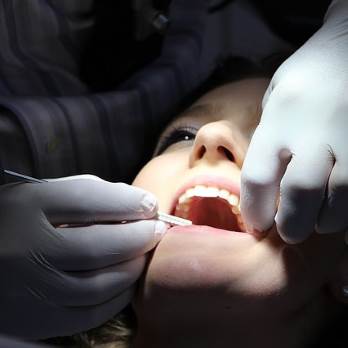Dental Implants: Complete Guide to Costs and Options
Dental implants have become the gold standard for replacing missing teeth, offering a permanent solution that looks, feels, and functions like natural teeth. Unlike dentures or bridges, dental implants provide a stable foundation by integrating directly with your jawbone, making them an increasingly popular choice for patients seeking long-term oral health solutions.

What Are Dental Implants and How Do They Work?
Dental implants consist of three main components: a titanium post that serves as an artificial tooth root, an abutment that connects the post to the crown, and a custom-made crown that mimics your natural tooth. The titanium post is surgically placed into the jawbone, where it fuses with the bone tissue through a process called osseointegration. This biological process typically takes three to six months and creates a strong, permanent foundation for the replacement tooth. The biocompatible nature of titanium makes it an ideal material, as it rarely causes allergic reactions and integrates seamlessly with human bone tissue.
How Much Do Dental Implants Cost for Seniors?
Dental implant costs for seniors typically range from $3,000 to $6,000 per tooth, though prices can vary significantly based on location, complexity of the case, and additional procedures needed. Many seniors require bone grafts or sinus lifts due to age-related bone loss, which can add $300 to $3,000 to the total cost. Some dental practices offer senior discounts or flexible payment plans specifically designed for older adults on fixed incomes. Medicare generally doesn’t cover dental implants, but some Medicare Advantage plans may provide partial coverage for implant procedures deemed medically necessary.
What Factors Affect Dental Implant Prices in Your Area?
Geographic location plays a significant role in determining dental implant costs, with urban areas typically charging 20-30% more than rural locations. The complexity of your case, including the need for preparatory procedures like tooth extractions, bone grafts, or periodontal treatment, directly impacts the final price. Premium implant brands from companies like Nobel Biocare or Straumann may cost more than standard options, but they often come with longer warranties and proven track records. The experience and specialization of your dental provider also influences pricing, as oral surgeons and periodontists typically charge more than general dentists for implant placement.
How to Find the Best Dental Clinics in Your Area?
Research local dental clinics by checking online reviews, verifying credentials through state dental boards, and asking for referrals from your current dentist or physician. Look for practices that specialize in implant dentistry and have completed numerous successful cases, as experience directly correlates with better outcomes. Many top dental clinics offer free consultations where you can evaluate their technology, cleanliness standards, and staff professionalism. Consider clinics that use advanced imaging technology like 3D CT scans and computer-guided surgery, as these tools improve precision and reduce complications.
What Dental Insurance Options Cover Implant Procedures?
Traditional dental insurance typically covers only 10-50% of implant costs, often capping annual benefits at $1,000-$2,000, making full coverage unlikely for most patients. Some newer insurance plans specifically include implant coverage, with companies like Delta Dental and Cigna offering enhanced plans that cover up to 80% of implant procedures after waiting periods. Medical insurance may cover implants in cases involving accident-related tooth loss or congenital conditions, but coverage varies widely between providers. Dental savings plans and health savings accounts (HSAs) can provide alternative financing options for patients whose insurance doesn’t adequately cover implant treatments.
Real-World Pricing Comparison for Dental Implant Providers
Understanding actual costs from established dental providers helps you make informed decisions about your implant treatment. The following comparison reflects typical pricing structures across different types of dental practices, though individual cases may vary based on complexity and additional procedures needed.
| Provider Type | Average Cost Per Implant | Additional Services | Geographic Coverage |
|---|---|---|---|
| Aspen Dental | $3,500 - $4,500 | Free consultations, financing options | Nationwide chain |
| ClearChoice | $4,000 - $6,000 | Same-day procedures, full-mouth restoration | Major metropolitan areas |
| Local Oral Surgeons | $3,800 - $5,500 | Specialized surgical expertise | Regional coverage |
| General Dentists | $3,000 - $4,200 | Comprehensive dental care | Local communities |
| Dental Schools | $2,000 - $3,500 | Supervised student treatment | Limited locations |
Prices, rates, or cost estimates mentioned in this article are based on the latest available information but may change over time. Independent research is advised before making financial decisions.
The success rate for dental implants exceeds 95% when performed by qualified professionals, making them one of the most predictable dental procedures available today. In the United States, over 3 million people currently have dental implants, with that number growing by 500,000 annually. Modern implant technology includes innovations like immediate loading implants, which allow temporary crowns to be placed the same day as the implant surgery, and mini implants designed for patients with insufficient bone density.
Choosing dental implants represents a significant investment in your long-term oral health and quality of life. While the upfront costs may seem substantial, implants typically last 25 years or longer with proper care, making them cost-effective compared to repeatedly replacing bridges or dentures. The improved ability to eat, speak, and smile confidently often justifies the expense for patients who choose this permanent tooth replacement solution.
This article is for informational purposes only and should not be considered medical advice. Please consult a qualified healthcare professional for personalized guidance and treatment.




